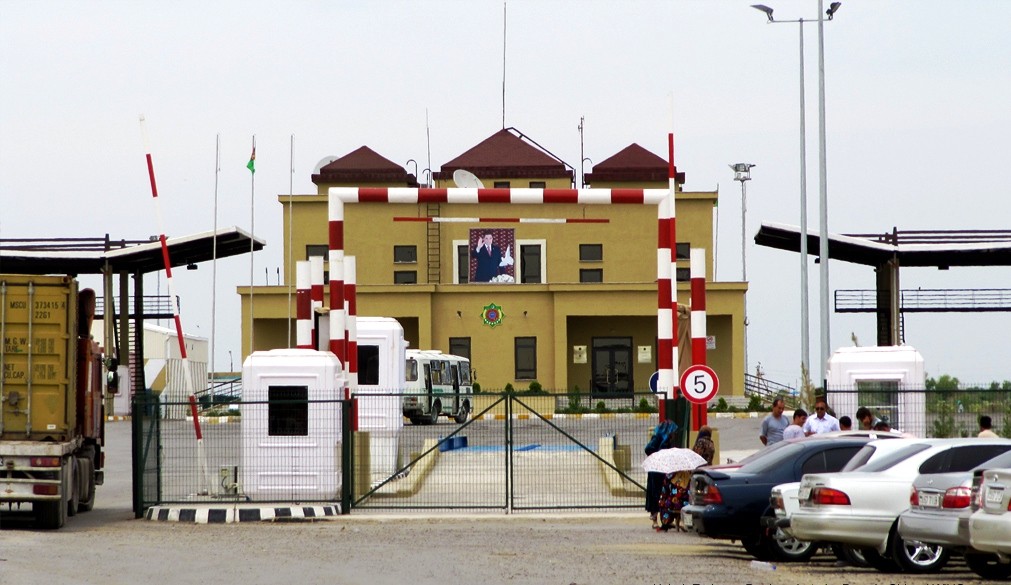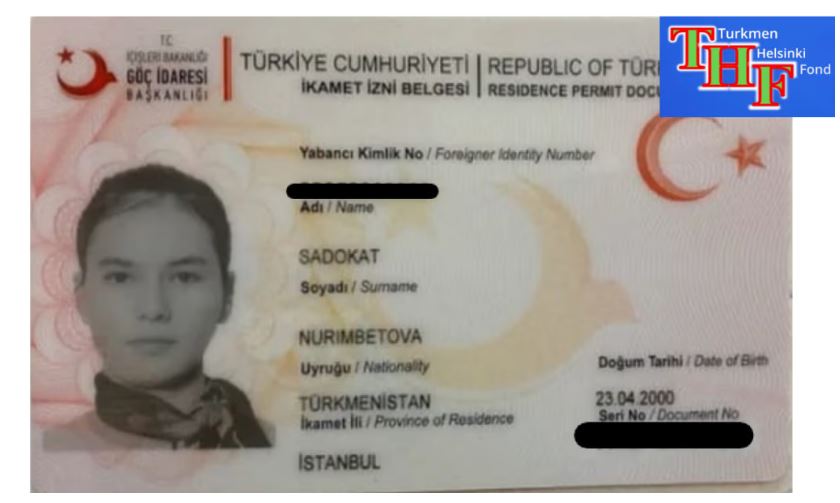Viewing results 1 - 6 of 246
The International Partnership for Human Rights (IPHR) has called on the Tajik authorities to repeal recent amendments to the law imposing restrictions on “foreign” clothing. According to activists, such restrictions violate international human rights, particularly the right to freedom of expression and freedom of religion. In a statement issued on August 19, IPHR emphasized that since clothing is an important element of personal identity as well as religious and cultural beliefs, states have an obligation to protect people's right to choose what they wear. According to amendments to the law “On the Ordering of Traditions, Celebrations and Rites”, enforced in June this year, Tajikistan prohibits “importing, propagandizing and selling clothes that do not correspond to the national culture.” Although a precise definition of such has yet to be provided, there has been a clear focus by authorities on “Islamic” clothing, and in particular, the issue of a fatwa by Tajikistan's Ulema Council urging women to avoid wearing “tight, black or see-through clothing.” Violations of the law are punishable by heavy fines or imprisonment for up to three years. IPHR continues to stress that restrictions based on religious, cultural, or traditional values cannot justify the violation of human rights The amendments were earlier condemned by The League of Muslim Scholars and other international organizations, and the Taliban even declared “jihad” against Tajikistan. In response to international criticism, Tajik authorities reiterated that the new law aims to protect national values and prevent extremism.
Russia is considering a bill that could restrict the right of migrant workers to bring their families into the country. The initiative from LDPR deputies, led by Leonid Slutsky, has already sparked active discussions among politicians and society. The main goal of the proposed law is to reduce the inflow of uncontrolled migration and the ensuing public tension. Particular reference is made to the many migrant families living in Russia who accumulate debts for public utilities and create enclaves where local laws and customs are often ignored. The bill suggests that with the exception of highly qualified specialists, the presence of a work contract or a patent, should no longer be a reason for migrants to move their families to Russia. This bill is not the only measure aimed at tightening the migration policy in Russia. In 2022, a “controlled stay” system was introduced, strengthening control over migrants on the country's territory. In recent years, Russia has also introduced labor migration quotas limiting the number of jobs available to foreign nationals, especially in construction, trade, and other low-skilled sectors. These quotas were further tightened, resulting in fewer migrants entering the country. Another measure was the introduction of compulsory health insurance for migrants, adding a financial burden to those coming to work in Russia. In addition, strict language and cultural integration requirements have been introduced, including mandatory Russian language training and exams on the country's history and culture. Such actions have drawn criticism from human rights activists, who believe that the restrictions could increase social tensions and make life difficult for migrants already living in Russia.
The Chronicles of Turkmenistan reports that Turkmenistan has sent a list to several countries comprising 50 people, asking that they not be permitted to enter their territory, or to have them deported to Turkmenistan. The appeal was sent to Belarus, Russia, Azerbaijan, Kazakhstan, Uzbekistan, Tajikistan, Kyrgyzstan, Turkey, Iran, Moldova, Georgia, and Armenia. According to the authorities, the index lists civil activists, journalists, independent media, and opposition representatives as threatening state security. Turkmenistan has prioritized the return of nine people from this list. It remains to be seen whether the aforementioned foreign countries will execute the Turkmen authorities wishes. However, Turkmen.news journalist Ruslan Myatiev, who went to Turkey on summer vacation with his family on July 25, was not allowed to enter the country. After several hours of interrogation by the Turkish National Security Service, Myatiyev was deported to Turkmenistan. The Times of Central Asia previously reported that the daughter of a Turkmen activist was not allowed to fly to Turkey. This follows on from an increasing number of cases where Turkmen citizens have been removed from flights abroad without explanation; the same thing is reportedly happening when attempting to cross the border by land.
Tajik authorities have seized the property of a recently detained group of prominent political figures, as well as property belonging to their close relatives. Sources say investigators have seized the bank accounts of ex-Democratic Party chairman and former MP Saidjafar Usmonzoda, ex-Supreme Council chairman Akbarsho Iskandarov, ex-Foreign Minister Hamrokhon Zarifi, journalist and Democratic Party deputy chairman Ahmadshokh Komilzoda, Social Democratic Party of Tajikistan deputy chairman Shokirjon Khakimov, and their relatives. Usmonzoda was detained in Dushanbe on 14 July. Authorities claim that he was planning to overthrow President Emomali Rahmon and his government. It is not clear whether the other political figures were arrested in connection with the same alleged plot. A ban has been imposed on the sale or lease of residential houses and apartments, dachas, cars, and other movable and immovable property by members of their families. In addition, relatives of the detainees report being pressured in other ways. One of them, who wished to remain anonymous, reported that he was dismissed from his job at the behest of official bodies. Tajikistan's Prosecutor General's Office, which investigates cases against former political figures, has not provided details because the cases are classified. Relatives of the detainees have not yet been allowed to meet with them in the pre-trial detention center. Most lawyers refuse to defend the detainees and their relatives for fear of repurcussions.
Asliddin Sharipov, the brother of Tajik opposition activist Shavkat Muhammad, has been sentenced to 12 years in prison. The sentence was handed down in March of this year, but information only appeared on July 29; authorities have not provided an official comment. One of Sharipov's acquaintances said that he was transferred from the Khujand pre-trial detention center to a prison in Dushanbe. He had been living in Russia since 2016 but was detained at the request of Tajik authorities in September 2022 and extradited to Tajikistan on October 1, 2023. For almost two months there was no information about his whereabouts. It later became known that Sharipov, 37, was being held in one of the isolation centers in Khujand. The Tajik authorities have not commented on the reasons for Asliddin Sharipov's detention. Human rights organizations link Sharipov's arrest and extradition to the activities of his brother Shavkat Muhammad, editor of the television channel “Payom,” which is banned in Tajikistan and run by the Islamic Renaissance Party. According to human rights activists and Shavkat Muhammad himself, his brother's arrest is aimed at silencing him and stopping him from criticizing the authorities.
Sadokat Nurimbetova, the daughter of prominent civil activist Hamida Babajanova, was removed from a Turkmenistan Airlines flight to Istanbul at Ashgabat International Airport, it has been reported. Nurimbetova, an ethnic Uzbek, is a second-year student at Istanbul Medical University, and accordingly she has a valid Turkish residence permit, a “kimlik.” On June 5, Nurimbetova went to her home country to apply for a new passport, which she duly received on July 10, and bought a plane ticket to Istanbul. At passport control, two immigration officials intercepted Nurimbetova and took her to a separate room. There, she was fingerprinted and interrogated, after which the Migration Service officers told the student that she was banned from leaving Turkmenistan. “This is a directive from above," Nurimbetova was told, and was advised not to go anywhere and not to complain to anyone. It was also emphasized to her that her mother should not entertain thoughts of going anywhere. Nurimbetova is the daughter of well-known Turkmen civil activist Hamida Babajanova, who last year defended the right of her elderly mother, Yakujan, to make a pilgrimage to Mecca. Recently, cases of Turkmen citizens being removed from flights abroad without explanation have become more frequent. The same thing is happening when attempting to cross the border by land.


